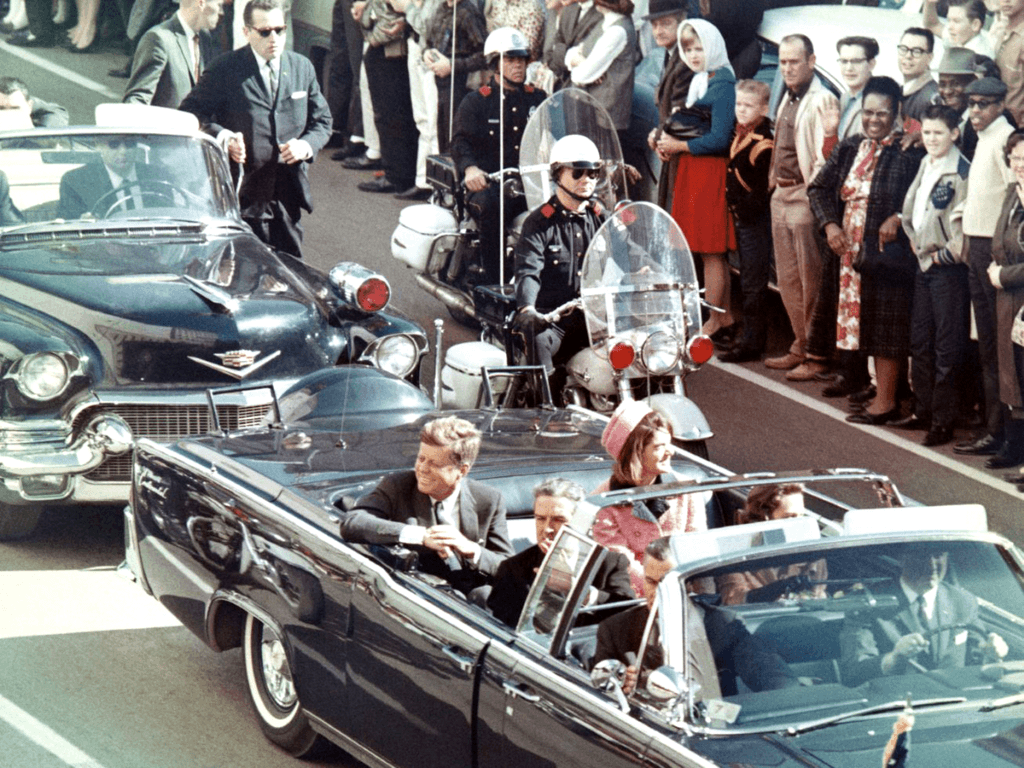JFK files released
October 27, 2017 | Expert Insights

Thousands of previously classified files relating to the assassination of the US President John F Kennedy have been released by the US administration after President Trump announced his decision to declassify the documents.
Trump, however, had to bow down to pressure exerted by the CIA and the FBI and has blocked the release of hundreds of more sensitive records.
Background
John Fitzgerald Kennedy was the 35th President of the United States from January 1961 until his assassination in November 1963. A Democrat, he was a popular politician who served during the Cold War. He also presided over the Cuban missile crisis. JFK as he was popularly known, defeated Republican opponent Richard Nixon in the 1960 Presidential election.
On November 22nd 1963, he was visiting Dallas, Texas on a political trip. There was friction between Democratic politicians Ralph Yarborough and Don Yarborough (no relation) and conservative John Connally. He was travelling in a Presidential motorcade when he was shot in the back and once in the head. 24-year-old Lee Harvey Oswald was arrested for the murder and was subsequently charged with Kennedy's assassination however he maintained his innocence. A man named Jack Ruby on November 24th killed him before he could be prosecuted.
JFK’s assassination has long been the center of conspiracy theories. There are those who believe that either Oswald wasn’t the shooter or that he worked along with a second person. The Zapruder film, which is a silent, color motion picture sequence shot by private citizen Abraham Zapruder with a home-movie camera, has also be scrutinized for decades. Zapruder was able to unexpectedly capture the exact moment the President was assassinated on camera.

Analysis
US President Donald Trump announced that he will be ordering the release of 2800 files relating to the assassination of John F Kennedy. He Tweeted, “The long anticipated release of the #JFKFiles will take place tomorrow. So interesting!” However, after pressure from the CIA and FBI to protect the more sensitive records, he has agreed to withhold hundreds of documents. A 1992 law passed by Congress required all records related to the assassination to be publicly disclosed in full within 25 years but a President has the authority on whether or not they should be released. Some experts have expressed their disappointment that the full extent of the investigation and the evidence collected will not be shared with the public.
"I think it's shameful," CNN chief legal analyst Jeffrey Toobin said. "This is something that the intelligence agencies have had not years, but decades to deal with." He added, "This instinctive desire to keep things secret is so engrained, that even relating to events in the early 1960s, the idea that they can't be released at this point is absurd."
Thousands in the US and across the world have begun pouring over the files that have been released. In one document, the then infamous FBI Director J Edgar Hoover states that "There is nothing further on the Oswald case except that he is dead." He also expresses concern that the public is unwilling to accept Oswald as the killer stating, “The thing I am concerned about, and so is (deputy attorney general) Mr. Katzenbach, is having something issued so we can convince the public that Oswald is the real assassin. He also reported: "Last night we received a call from our Dallas office from a man talking in a calm voice and saying he was a member of a committee organized to kill Oswald."
One detail that has emerged is that the FBI had warned the police of a death threat against the assassin Lee Harvey Oswald. "We at once notified the chief of police and he assured us Oswald would be given sufficient protection", writes the FBI director J Edgar Hoover. As the assassination took place during the height of Cold War, one memo has revealed that the Soviets were worried about the possibility of war. A memo showed that Soviet officials feared an "irresponsible general" would launch a missile at the USSR in the wake of the assassination.
Some redacted documents are undergoing a further six-month review, but it is possible those records could stay secret after the deadline on 26 April next year.
Assessment
Our assessment is that JFK’s assassination has been in the center of multiple controversies. Millions in the US grieved in 1963 when the popular President was killed. It is unlikely that amateur sleuths across the world who shall now be perusing these files will be able to come up with definitive leads as the more sensitive documents remain redacted.








Comments